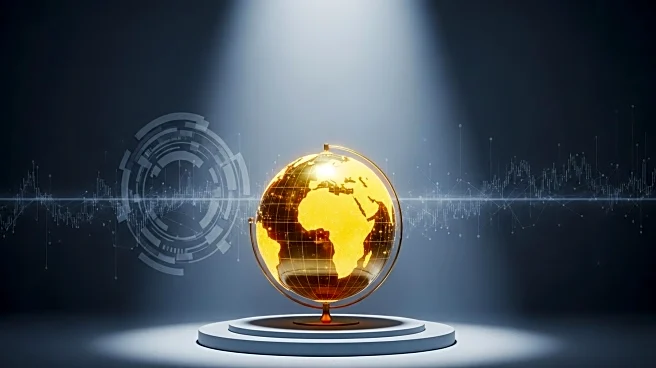What is the story about?
What's Happening?
China has increased its restrictions on rare earth exports, prompting President Trump to threaten economic retaliation and consider canceling a meeting with Chinese President Xi Jinping. Rare earth minerals, which include 17 metallic elements such as scandium, yttrium, and the lanthanides, are crucial for various technologies and military applications. China controls 61% of mined production and 92% of the processing stage globally. The restrictions are seen as a response to Trump's reciprocal tariffs on Chinese goods. The U.S. relies heavily on China for rare earths, with 70% of imports coming from the country between 2020 and 2023.
Why It's Important?
The restrictions on rare earth exports by China could significantly impact U.S. industries, particularly technology and defense sectors that depend on these materials. The U.S. military uses rare earths in advanced weaponry and equipment, making them vital for national security. The trade war escalation could lead to increased costs and supply chain disruptions for U.S. companies reliant on these elements. The situation underscores the strategic importance of diversifying sources of rare earths to reduce dependency on China, which has historically used its control over these resources as leverage in international trade negotiations.
What's Next?
President Trump has indicated potential financial countermeasures against China's move, which could further escalate the trade tensions between the two nations. The upcoming meeting between Trump and Xi at the APEC summit in South Korea may be pivotal in determining the future of trade relations and rare earth supply chains. U.S. policymakers and industry leaders may seek to accelerate domestic production and processing capabilities to mitigate reliance on Chinese exports. Additionally, international collaborations with other rare earth-producing countries could be explored to secure alternative supply sources.
Beyond the Headlines
The geopolitical implications of rare earth control highlight the need for ethical and sustainable mining practices. The environmental impact of rare earth extraction and processing is significant, raising concerns about the long-term sustainability of these operations. As countries vie for control over these critical resources, the balance between economic interests and environmental stewardship becomes increasingly important. The situation may also prompt discussions on the ethical dimensions of resource monopolization and the responsibilities of nations in ensuring equitable access to essential materials.
















